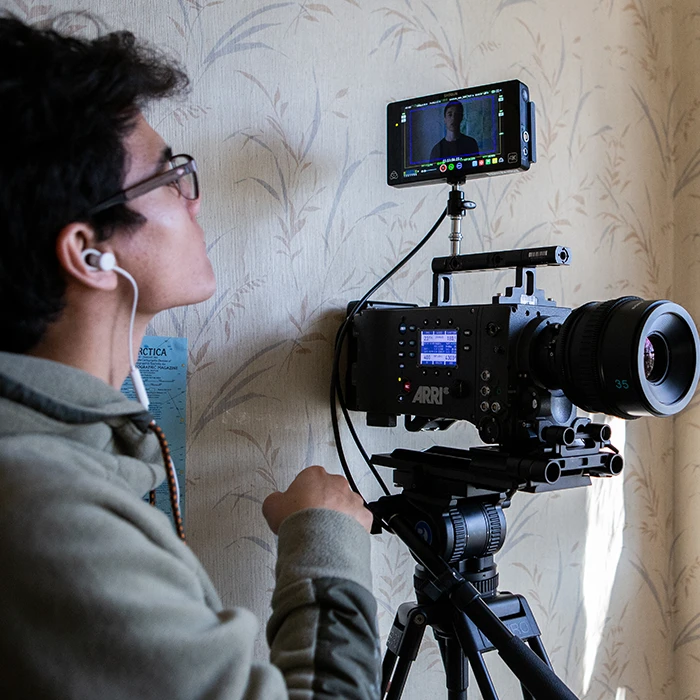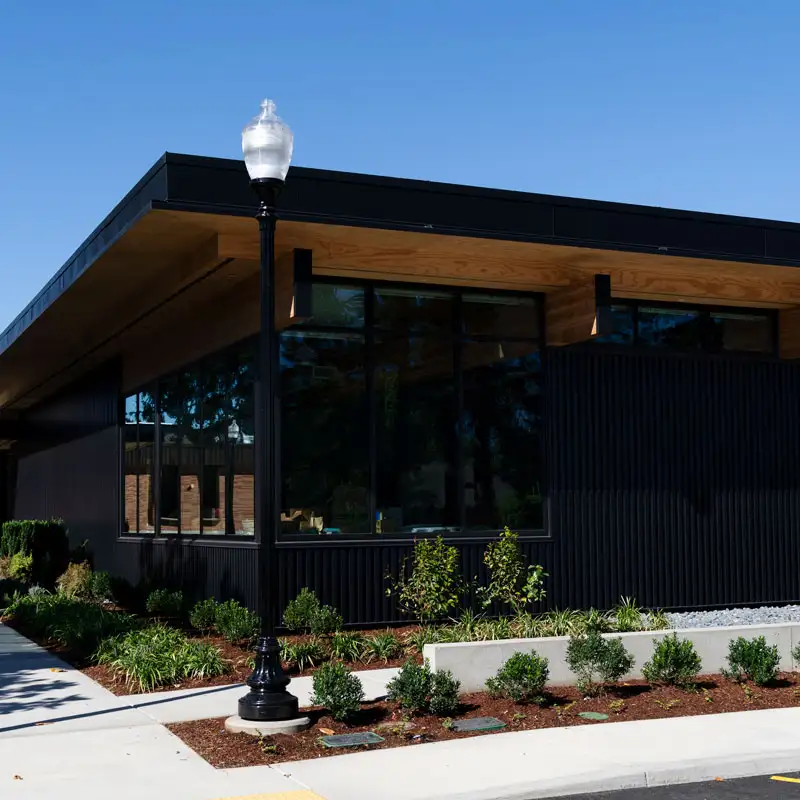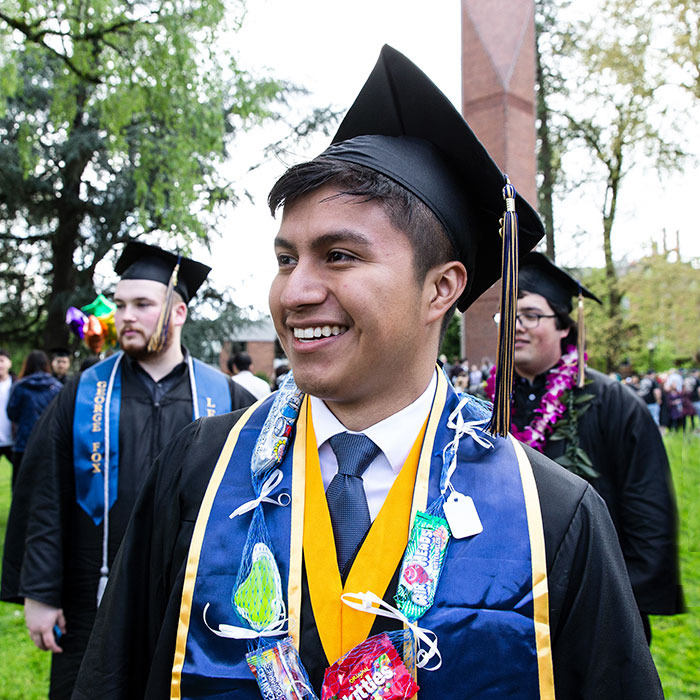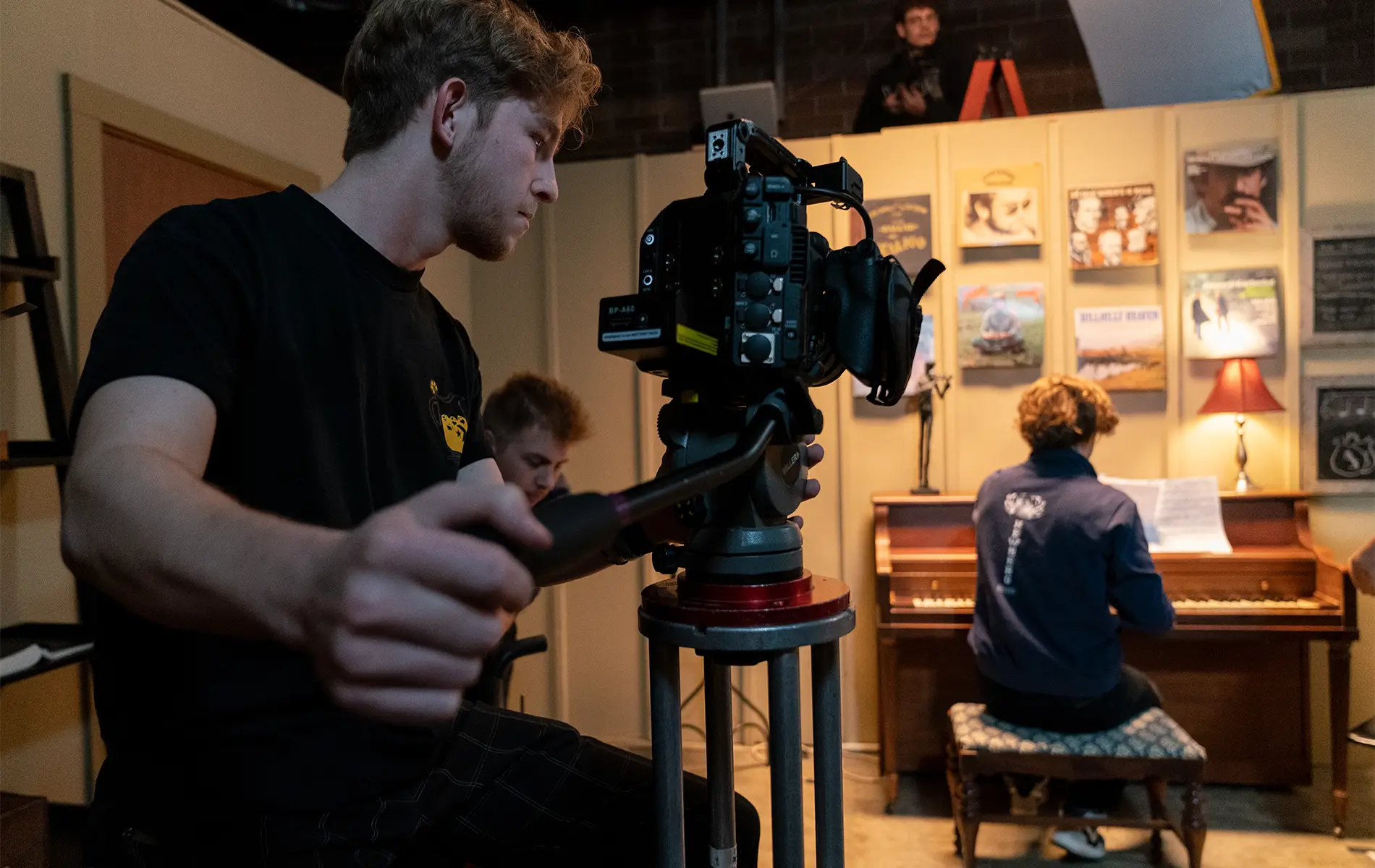At A Glance
Program Type
Bachelor of Arts (BA)
Accreditation
Northwest Commission on Colleges and Universities (NWCCU)
Animation, Film and Video Production
Experience
Students participate in the university's annual Fox Film Festival

There’s beauty in directing a film that inspires change, power in producing sound that pulls at someone’s heart strings, pride in creating animation that sparks joy.
If you’re passionate about film and its potential to have impact, join the cinematic arts community as we pursue that shared passion through hands-on projects that develop creative skills.
The cinematic arts major teaches you to merge critical thinking, film theory, and imagination into production. Students choose from two concentrations that prepare them for a wide variety of jobs, ranging from commercial filmmaking to recording rock bands, from crafting 3D animation and special effects to shooting documentaries in third-world countries.
Faith inspires us to be great filmmakers, to be directors, producers and editors who tell the truth and challenge the status quo. It guides us to create with integrity, humility and joy. And faith brings us together as a community – one where professors know you by name and take your passions and ambitions seriously.
‘Reel’ World Experience
George Fox cinematic arts students travel to the Sundance Film Festival in Park City, Utah, to screen films and learn about contemporary independent filmmaking from some of the world's top industry artists and experts. While at Sundance, students also participate in events such as the Windrider Forum, an event organized by Fuller Theological Seminary that integrates themes and questions of faith with film.
Concentrations
Film and Video Production
Learn to shape stories that inspire, inform and entertain through the art of visual storytelling, our culture’s most powerful medium. Students in the film and video production concentration learn to write, shoot, direct and edit their own films in a way that meets the artistic expectation audiences expect, but also pushes the boundaries of film towards the next big ideas.
Animation
Animation is everywhere. Industries that utilize animation range from film and TV to advertising, gaming, motion graphics, scientific visualization, and so much more. Students in the animation concentration get to use industry-standard software to bring their animated stories to life.
Program Distinctives Why Study Cinematic Arts at George Fox?
-
You’ll be surrounded by a community that shares your passion for storytelling and impact through film. These are people who won’t settle for less than their best, as students and as Jesus-followers, and who will push you to do the same.
-
You will learn from industry experts who have experience in the field.
-
There are so many different paths to pursue in the film industry, and that can feel overwhelming. Here, you’ll be exposed to different aspects of the industry, giving you the interdisciplinary knowledge of different areas of film to back up your specialty.
-
You get hands-on experience with industry-standard equipment. This means your film, audio, and animation goes from good to great. And that means that your vision for your project is fulfilled!
-
Our students put knowledge into use through a series of intensive, hands-on projects. All our students complete at least one internship to help them channel their passion into a career.
Courses / Curriculum What Will I Study?

Our spaces/Where Will I Learn?
Art & Cinematic Arts Building
We have great news for our art students! The vibrant and growing art and design program – housing the university’s graphic design, studio art and arts administration, illustration, and cinematic arts majors – has a new home as of fall 2025.
The new 6,000-square-foot facility is located between the Maker Hub and Pennington Hall and features a large studio for pottery and ceramics, another space for glass and sculpture, and a partially covered courtyard work area with a ceramics kiln. You could be one of the first classes to use this new space and make your mark on the art program for years to come.
Career Outlook What’s After George Fox
Employment of broadcast, sound, and video technicians is projected to grow 1% from 2024 to 2034, according to the U.S. Bureau of Labor Statistics. There are numerous opportunities in film, radio, music and other audio productions including, books, podcasts and radio.
Our cinematic arts students have gone on to do some game-changing work in the professional world.
- Video Production, Portland Trail Blazers
- Producer, Graystone Media → Sports Media Production (produced the Civil War: Ducks vs Beavers)
- Portland Film Community: Grimm, Portlandia, Pretty Little Liars, The Librarians
- Audiovisual Tech, Nike
- Videographer, Reverie Creative Agency
- Luis Palau Ministries
- Producer, Happy Finish
- Courtroom Trial Videographer
- Director of Promotions and Listener Engagement, BOOST Radio
- Site Director, Gear Up
- Production Intern, Hollywood, California
- Keiki O Ka Aina
- Refuge VFX
- Pixar
- American Film Institute
- University of Southern California
- UCL (London)
- University of Oregon

Edauntae is Everywhere
An aspiring filmmaker, Harris didn’t just have a lot of fun at George Fox – he also turned a passion into a future career. “Growing up, we didn’t have much, but we had movies,” he says. “I never thought that I’d get to make them for a living.”
As a cinematic arts major, he’s been equipped to do just that, experiencing the same joy in the classroom as he does on the dance floor. “When we get an opportunity to actually use what we’re learning in class, that’s the best part about it,” he says. “You get to be a part of every step. And when you get a chance to see the finished product, which is your film, you’re sitting there like, ‘Wow, I had my hand in that, and look what it produced.’”
Gaby Sipe
Class of 2019
My time as a cinematic arts major at George Fox was a truly enriching experience. My professors were extremely knowledgeable, encouraging, and made me feel prepared to work in the industry. The program is full of passion that intertwines with a desire to bring honor to God through our creation of art. We were encouraged to use the creativity that we were blessed with and share it with those around us.
Chat with a current student
Hobbies & Interests: #Creative writing, #Film, #Sports
About Me: After graduation I plan to go into the LA film industry as a writer, producer, or director. I love making creative projects come to life, and...Read more
“What’s your favorite class?”
“What’s the best student event?”
Request Information About Cinematic Arts
